COVID-19

Reports about allergic reactions to COVID-19 vaccines will undoubtedly cause anxiety in people. Robert E. Bartholomew & Kate MacKrill remind us that, if history is a guide — and given the large number of people to be vaccinated — a mass anxiety event is not improbable.
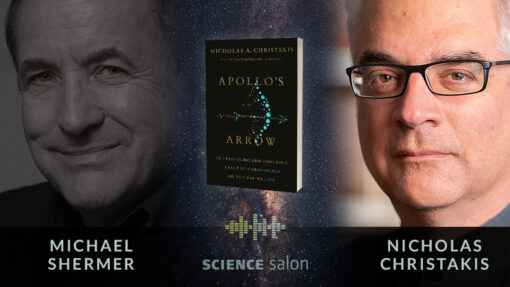
Shermer and Christakis discuss: the replication crisis in social science and medicine • determining causality: how we know smoking causes cancer and HIV causes AIDS, but vaccines do not cause autism and cell phones do not cause cancer • randomized controlled trials and why they can’t be done to answer many medical questions • natural experiments and the comparative method of testing hypotheses (e.g., comparing different countries differing responses to Covid-19) • the hindsight bias and the curse of knowledge…
Dr. Michael Shermer considers the pitfalls of projecting the consequences of the pandemic for our future (the availability heuristic, the negativity bias, the difficulties of superforecasting, and the contingent nature of history). PLUS: In Science Salon # 131, Michael Shermer speaks with Stuart Ritchie his book Science Fictions: How Fraud, Bias, Negligence, and Hype Undermine the Search for Truth.
Right now, we are all confronting one of humanity’s scariest enemies: epidemic disease. Are we brave enough to face this horror? You bet we are! Download Junior Skeptic 76 for free: Pandemics Throughout History—How Mistakes, Fakes, and Missing Facts Make Epidemics Worse. PLUS: Dr. Michael Shermer gives a remote lecture on free speech & censorship.
In Science Salon # 124 Michael Shermer speaks with David J. Halperin about what our fascination with UFOs tells us about ourselves as individuals, as a culture, and as a species.
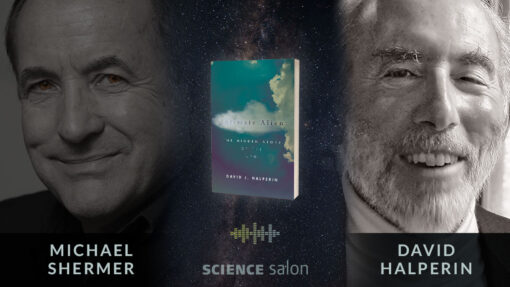
In Science Salon # 124 Michael Shermer speaks with David J. Halperin about what our fascination with UFOs tells us about ourselves as individuals, as a culture, and as a species.
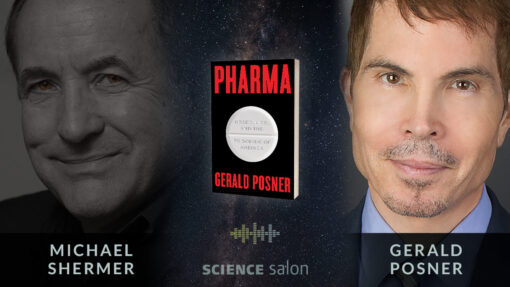
In Science Salon Podcast # 123, Michael Shermer and Gerald Posner discuss how Big Pharma conspires to hack FDA regulations, the Opioid crisis. addiction, greed, capitalism, drug patents, innovation, and the prospects for a COVID-19 vaccine.
Save 40% on new digital subscription via PocketMags.com, now thru July 25, 2020. PLUS, in Science Salon Podcast # 123, Michael Shermer and Gerald Posner discuss how Big Pharma conspires to hack FDA regulations, the Opioid crisis. addiction, greed, capitalism, drug patents, innovation, and the prospects for a COVID-19 vaccine.
In Science Salon # 122 Michael Shermer speaks with Walter Scheidel as he recounts the gripping story of how the end of the Roman Empire was the beginning of the modern world. PLUS, Harriet Hall, M.D. sets the record straight on wearing face masks during the COVID-19 Pandemic.

Masks have been proven to reduce the spread of COVID-19, but instead of believing the evidence and following public health guidelines, many people have turned mask wearing into a political statement. They are refusing to wear masks for reasons that are laughable. Rejecting masks is selfish: it means they don’t care if other people get sick and die. Here’s what Harriet Hall, M.D., The SkepDoc, has to say about it.
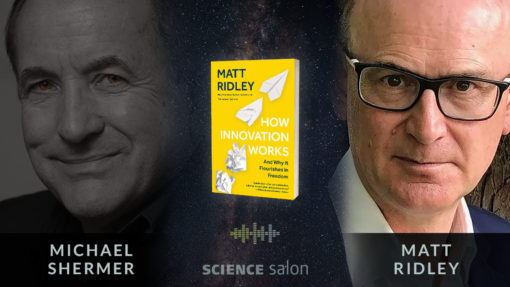
Innovation is the main event of the modern age, the reason we experience both dramatic improvements in our living standards and unsettling changes in our society. Matt Ridley argues that we need to think about innovation as an incremental, bottom-up, fortuitous process that happens to society as a direct result of the human habit of exchange, rather than an orderly, top-down process developing according to a plan.
In Science Salon # 117, Michael Shermer speaks with Matt Ridley about his book How Innovation Works: and Why It Flourishes in Freedom.
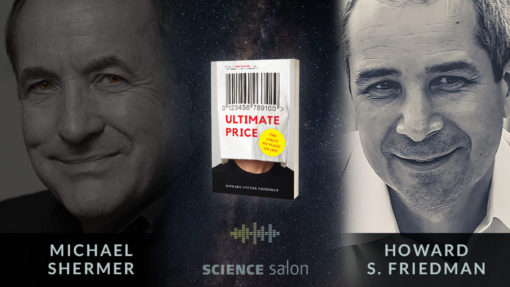
How much is a human life worth? In Science Salon # 116, Michael Shermer speaks with Howard Steven Friedman about the calculations that governments routinely use to place a price on human life.
How much is a human life worth? In Science Salon # 116, Michael Shermer speaks with Howard Steven Friedman about the calculations that governments routinely use to place a price on human life.
← PREVIOUS

















